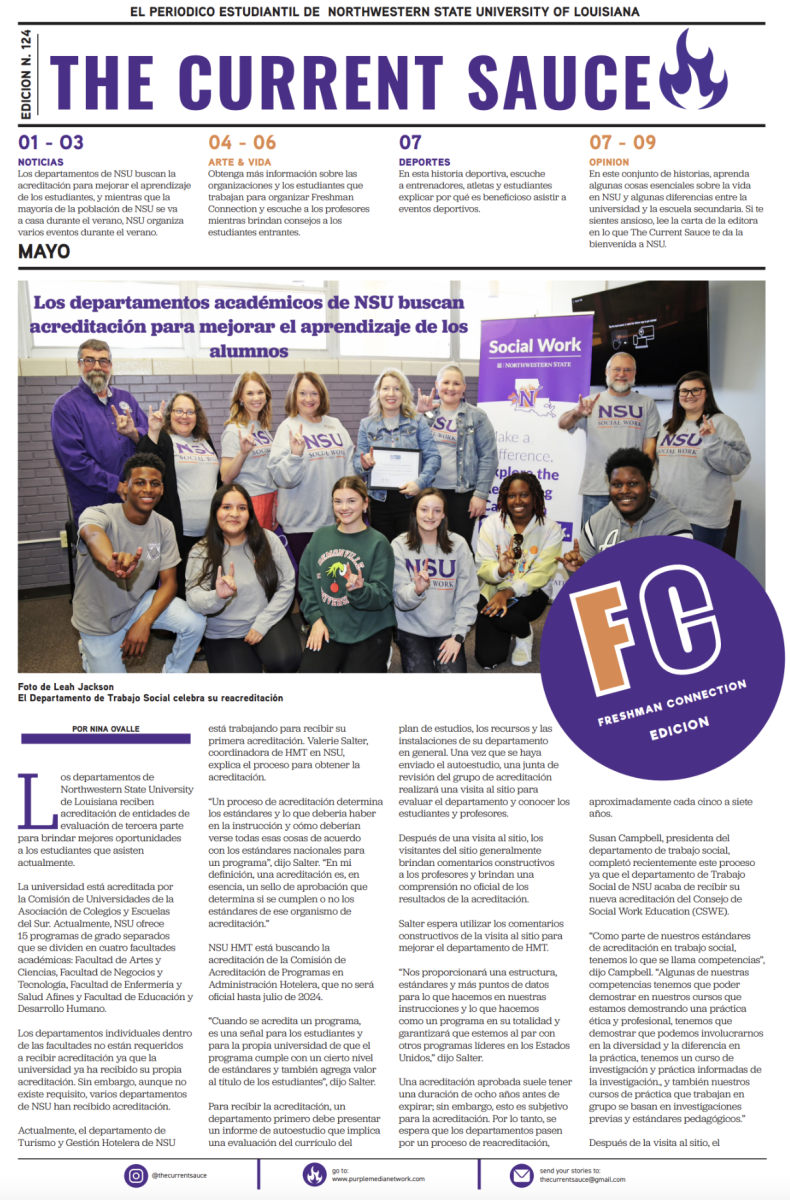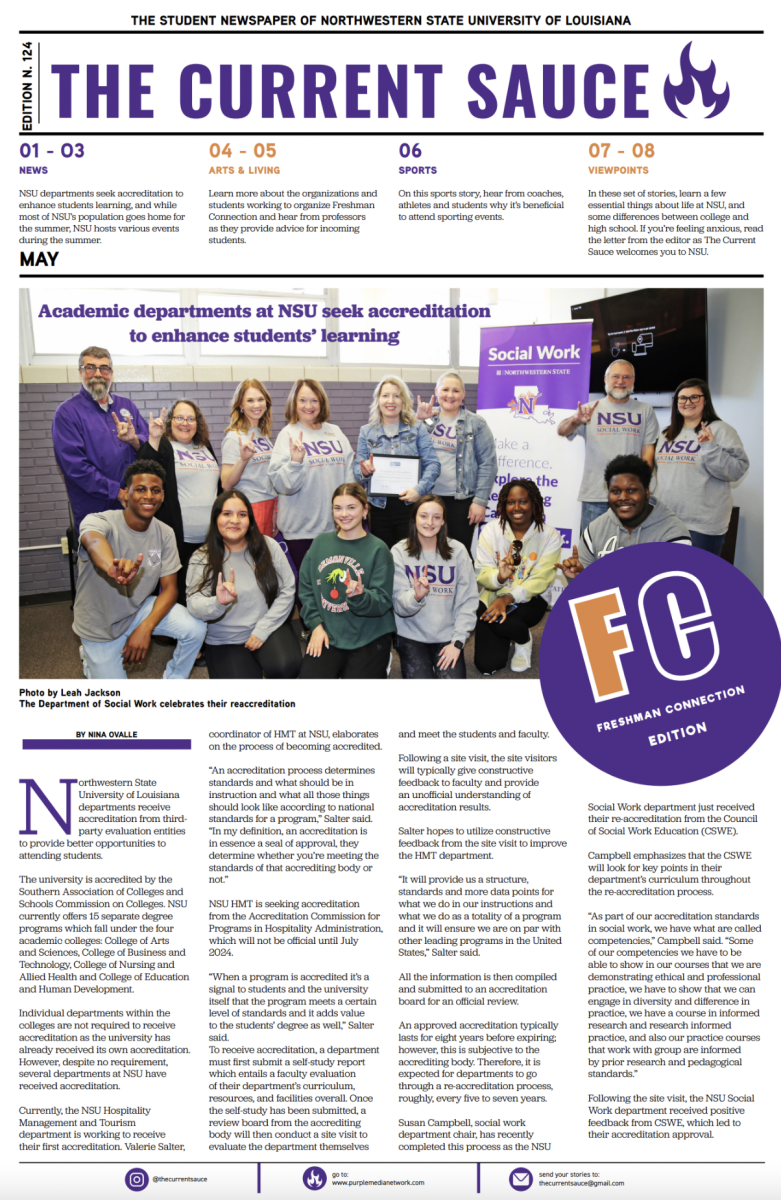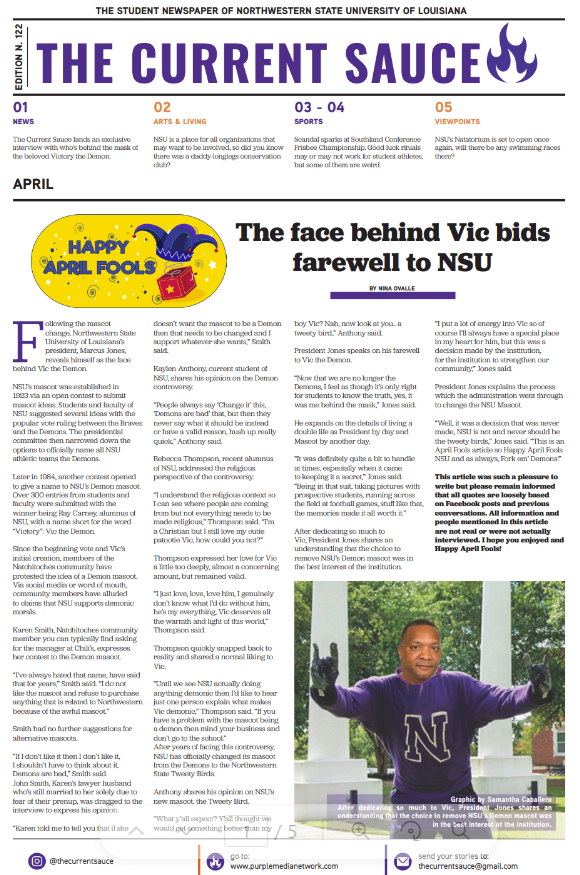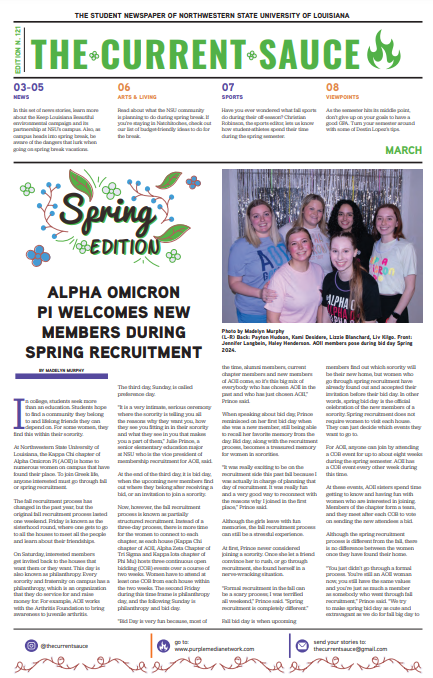Leanna Coy
News Editor
Two science classes at Northwestern State University are participating in research projects that show water from the unfiltered water fountains on campus has higher lead and copper levels than filtered fountains.
Dr. Chad Thibodeaux, professor in NSU’s school of biological and physical sciences, said the project is to examine the amounts of lead and copper from the drinking fountains in Bienvenu Hall, Fournet Hall and Kyser Hall. Thibodeaux said the reasons his classes are examining lead and copper are because a lot of plumbing is done with them and they are two metals that the Environmental Protection Agency have tightly regulated.
Thibodeaux said NSU has been installing filtered water fountains around campus.
“We wanted to see if they are making a difference in reducing these metals in the drinking water,” Thibodeaux said.
Thibodeaux said the water quality project has shown that the unfiltered water fountains have higher levels of lead and copper, especially in Fournet. He added that Kyser had the second highest levels, followed by Bienvenu.
In all three locations, Thibodeaux said the filtered drinking water substantially reduced the amounts of lead and copper.
“We hope this work will encourage the university to continue to purchase and install the filtered fountains throughout the university,” Thibodeaux said.
Thibodeaux said the group was able to duplicate the project’s results and that they ran checks in accordance with EPA methodology.
To determine whether the lead and copper necessarily make the unfiltered water unsafe, however, Thibodeaux said additional testing for longer periods of time would be required.
“As of right now, all we can say is that there are higher levels of the metals,” Thibodeaux said.
Thibodeaux said the potential side effects of lead in the water are high blood pressure, fatigue, memory loss, anemia, loss of appetite, sleep problems, kidney disfunction and constipation. As for copper, Thibodeaux said the potential side effects are headaches, fever, blood in vomit, diarrhea, black feces and jaundice.
“We want to encourage students to use the filtered water fountains because they are effective at reducing metal contamination and limit potential exposure, which was the main finding of the study,” Thibodeaux said.
Sarah Sargent, sophomore, said she can tell that there is a difference in the filtered drinking fountains on campus.
“I live in Columns apartments and will refuse to drink the water out of the sink,” Sargent said. “The water fountains on campus taste great. Just the sink water is undrinkable.”
The classes participating in the water quality project are Chemistry 4950 and Biology 4950. Abigail Poe, senior biology major, said she and her lab partner have worked together on research projects with Dr. Thibodeaux for several years now.
Between reading methods on how to properly collect and preserve water samples to analyzing them, Poe said the project has been “a learning experience for sure.”
Poe said she has faced both successes and setbacks but knowing the potential to make a difference on campus makes the effort worth it.
Julie Powell, director of university plant services and environmental health and safety officer, is excited that NSU chemistry and biology students are using their education to make a difference on campus.
However, she cannot make a statement unless she knows the testing methods and results.
“I can say that if I may obtain a copy of the testing method and results, I would be more than happy to follow up on the levels if needed,” Powell said.
































